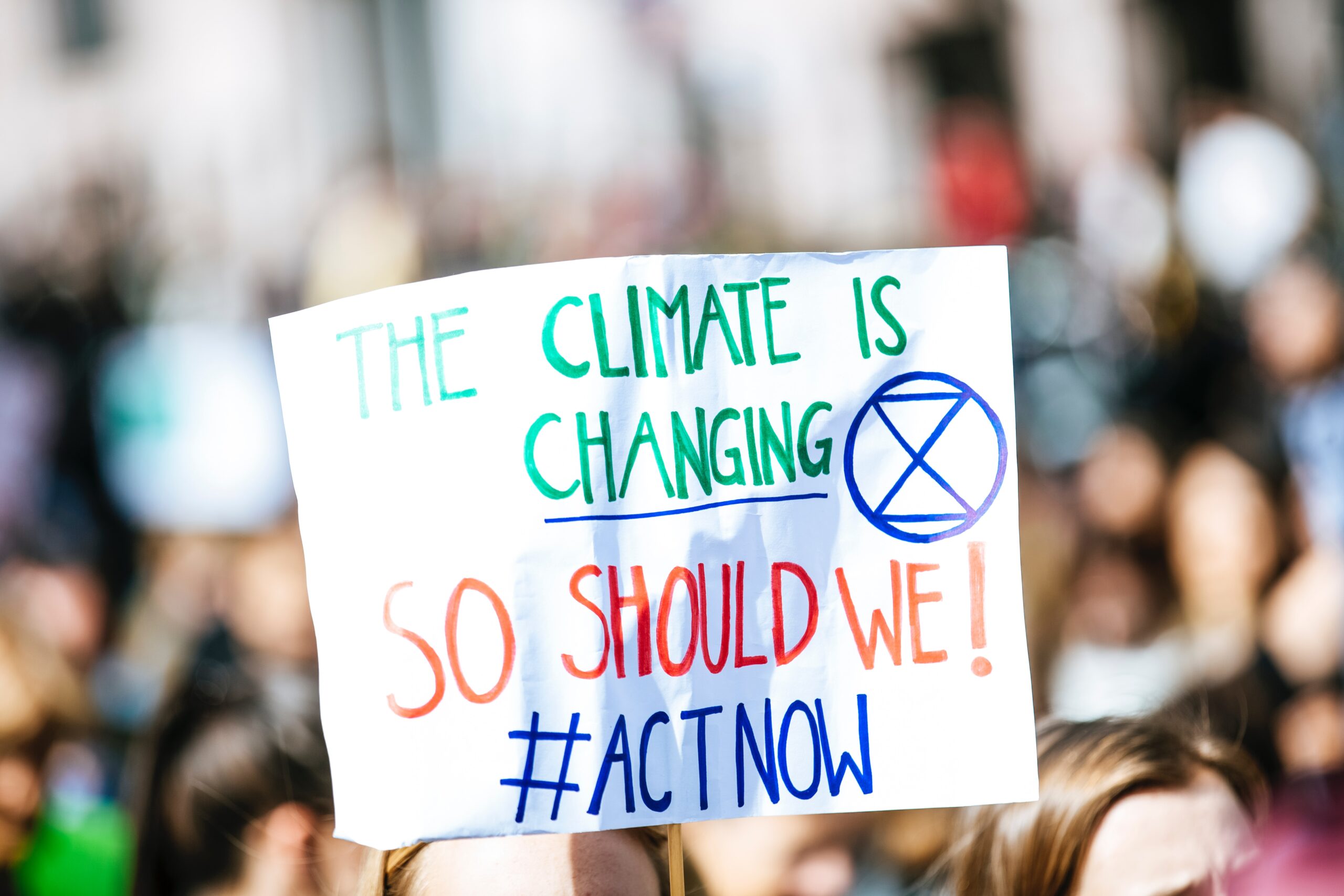
Climate Crisis: Working together to solve a greater problem
Today, we’re diving headfirst into one of the most pressing issues facing our planet: the climate crisis. It’s a topic that has captured global attention and sparked passionate debates among scientists, politicians, and activists alike. The truth is, we are at a critical juncture in human history where our actions (or lack thereof) have far-reaching consequences for future generations.
The state of our climate is dire, with rising temperatures, extreme weather events, and melting ice caps becoming all too common occurrences. But it’s not just about polar bears losing their habitats or coastal cities bracing for more frequent hurricanes; the climate crisis affects every corner of the globe in unique ways.
In this article, we will explore how different regions are being impacted by this crisis and what steps we as members of humanity can do to mitigate its effects. Moreover, we’ll discuss how each individual can play a role in shaping a sustainable future for ourselves and generations to come. So grab your favorite beverage, settle into a comfortable chair, and let’s embark on this journey together!
The current state of the climate crisis
The current state of the climate crisis is undeniably alarming. Our planet is experiencing unprecedented changes, with rising global temperatures being one of the most significant indicators. Heatwaves are becoming more and more intense and prolonged, leading to devastating consequences for both humans and our ecosystems.
Melting ice caps and glaciers are causing sea levels to rise at an alarming rate, posing a threat to coastal communities worldwide. Extreme weather events such as hurricanes, droughts, and floods are becoming more frequent and severe, displacing millions of people from their homes every year.
Moreover, we’re witnessing the loss of biodiversity at an astonishing pace. Habitats are being destroyed due to deforestation and urbanization, pushing countless species towards extinction. This loss not only disrupts delicate ecosystems but also impacts our own well-being as we depend on nature for essential resources like clean air and water.
It’s crucial to acknowledge that these environmental challenges do not affect all regions equally. Developing countries often bear the brunt of the climate crisis despite contributing less to greenhouse gas emissions compared to industrialized nations.
In order to address this crisis effectively, international cooperation is imperative. We need governments, businesses, organizations, and individuals around the world working together towards sustainable solutions. This is not the time that we as a species should be divided but rather we should be united under one goal and one objective to fix the problem that we have created. Time is running out; urgent action must be taken if we want to prevent irreversible damage.
How the climate crisis is affecting different parts of the world
The climate crisis is a global issue that affects every corner of the world. From melting glaciers in the Arctic to raging wildfires in Australia, the impacts of climate change are being felt far and wide.
In low-lying coastal areas such as Bangladesh and the Maldives, rising sea levels pose a significant threat. These communities are at risk of losing their homes and livelihoods as their land becomes submerged. Meanwhile, droughts and desertification plague regions like sub-Saharan Africa, leading to food insecurity and mass migration.
Extreme weather events have become more frequent and intense across many parts of the world. Hurricanes battering coastal cities, heatwaves scorching urban landscapes, and floods submerging entire towns – these are just some examples of how our changing climate is wreaking havoc on human lives.
But it’s not just humans who are suffering. Wildlife habitats are being destroyed, leading to dwindling populations of iconic species such as polar bears, elephants, and coral reefs teeming with marine life. Ecosystems that have thrived for centuries are now under threat from temperature increases and habitat loss.
The consequences of the climate crisis extend beyond environmental damage; they also impact social systems and economic stability. Displaced communities face challenges in finding new homes or rebuilding their lives after natural disasters strike. Agricultural sectors struggle to adapt to shifting growing seasons or cope with increased pests and diseases.
It is clear that no corner of the globe is immune from the effects of climate change. As we witness these devastating impacts unfold before our eyes, it becomes increasingly urgent for us all to take action collectively towards mitigating this crisis.
What can be done to mitigate the effects of the climate crisis
There is no denying that the climate crisis is one of the most pressing challenges facing our planet today. With rising temperatures, extreme weather events, and melting ice caps, it’s clear that urgent action is needed to mitigate its effects. But what can be done? How can we work together to address this global problem?
First and foremost, reducing greenhouse gas emissions should be a top priority. This means transitioning away from fossil fuels and embracing renewable energy sources such as solar and wind power. Governments, businesses, and individuals all have a role to play in promoting sustainable practices.
Another key measure is protecting and restoring natural ecosystems. Forests act as carbon sinks, absorbing large amounts of CO2 from the atmosphere. By preventing deforestation and reforesting areas that have been cleared, we can make significant strides in combating climate change.
Additionally, improving energy efficiency across sectors can make a substantial impact. From buildings to transportation systems, there are countless opportunities to reduce energy consumption through better technology and smart design.
Education also plays a crucial role in mitigating the effects of the climate crisis. By raising awareness about the importance of sustainability and providing people with the knowledge they need to make informed decisions about their lifestyle choices, we can foster a culture of environmental stewardship.
Lastly but certainly not least important: international cooperation is essential for effective climate action. The Paris Agreement was an important step forward in bringing nations together towards shared goals. Continued collaboration on policy-making and implementation will be vital for making progress on reducing emissions globally.
In conclusion (without using those exact words), addressing the climate crisis requires collective effort from governments, businesses,and individuals alike – each playing their part in reducing emissions,reversing habitat loss,and promoting sustainable practices.
It won’t be easy,but by taking these steps together we can help preserve our planet for future generations
How to get involved in solving the climate crisis
Getting involved in solving the climate crisis is crucial if we want to ensure a sustainable future for our planet. The good news is that there are numerous ways individuals can make a difference and contribute to this important cause.
One of the simplest ways to get involved is by educating ourselves about the issue. By staying informed about the latest scientific research, policy changes, and environmental initiatives, we can better understand the challenges at hand and take informed actions.
Reducing our carbon footprint is another effective way to combat climate change. This can be achieved through small lifestyle changes such as conserving energy, using public transportation or carpooling, reducing waste, and supporting renewable energy sources.
Advocacy plays a significant role in addressing climate change on a larger scale. We can join local or global organizations that work towards environmental conservation and raise awareness within our communities through events, campaigns, or even social media platforms.
Supporting businesses that prioritize sustainability practices is another impactful way to participate in solving the crisis. By choosing eco-friendly products and services from companies committed to reducing their environmental impact, we drive demand for greener alternatives.
Participating in community initiatives like tree planting projects or clean-up events allows us not only to directly contribute but also inspire others around us. When individuals come together with a shared purpose of protecting our planet’s health and well-being, it creates a powerful collective force for positive change.
Remember: every action – no matter how small – counts when it comes to combating the climate crisis. So let’s all do our part and work together towards creating a more sustainable future for generations to come!
Conclusion
The climate crisis is undoubtedly one of the greatest challenges our world faces today. From rising temperatures and extreme weather events to melting glaciers and disappearing species, its impact is being felt across the globe. But amidst this crisis, there is hope.
We have seen that when individuals, communities, governments, and organizations come together with a shared sense of urgency and purpose, we can make a difference. We can implement sustainable practices, invest in renewable energy sources, reduce greenhouse gas emissions, protect ecosystems, and adapt to the changing climate.
It’s crucial for each one of us to recognize our role in this collective effort. Whether it’s making small changes in our daily lives or advocating for policy changes on a larger scale, every action counts. We must prioritize sustainability in all aspects of our lives – from transportation choices to consumer habits.
Furthermore, education plays an essential role in addressing the climate crisis. By raising awareness about the consequences of global warming and equipping future generations with knowledge on sustainable practices and environmental stewardship, we can create a more conscious society that values our planet’s health.
Getting involved may take various forms – participating in local clean-up initiatives or joining grassroots movements pushing for change; supporting organizations working towards sustainability or engaging with policymakers to demand stronger actions against climate change. Collaboration between individuals from different backgrounds will be key as we work towards common goals.
Ultimately though this challenge seems overwhelming at times; remember that progress has been made before despite seemingly insurmountable obstacles such as ending slavery or achieving civil rights milestones. With determination and cooperation among nations worldwide combined with individual efforts from citizens globally who are committed not only protecting Mother Earth but also ensuring her longevity through responsible living habits like composting food scraps instead throwing them away which produces methane gas (a potent greenhouse gas), recycling bottles rather than trashing them into landfills where they release even more carbon dioxide gases when decomposing over time due lack oxygen availability due improper landfill management practices, using public transportation system instead driving own vehicle – we can overcome this crisis together.
Please share your comments or contact us today.

